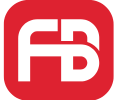Non Recourse Factoring
NON Recourse Factoring – Understanding the Pros and Cons of Factoring Facilities with and without Debtor Insurance Protection (Non-Recourse Factoring)
Welcome to our comprehensive guide on factoring facilities, a financial tool that businesses often use to improve cash flow. In this article, we’ll explore the advantages and disadvantages of factoring with and without debtor insurance protection, commonly known as non-recourse factoring.
I. Factoring Overview:
Before delving into the specifics, let’s briefly understand what factoring is. Factoring involves selling accounts receivable (unpaid invoices) to a third party, known as a factor, to receive immediate cash. This can be a valuable solution for businesses facing cash flow challenges.
II. Factoring with Debtor Insurance Protection (Non-Recourse Factoring):
Pros:
- Risk Mitigation: One of the primary advantages of non-recourse factoring is the transfer of credit risk. In the event of debtor insolvency or non-payment, the factoring company absorbs the loss, providing a safety net for your business.
- Predictable Cash Flow: With non-recourse factoring, you can better predict your cash flow since the risk of bad debt is shifted to the factor. This stability enables you to plan and manage your finances more effectively.
- Enhanced Borrowing Power: Non-recourse factoring can improve your creditworthiness, as the factor assumes the credit risk. This, in turn, may enhance your ability to secure additional financing from traditional lenders.
Cons:
- Higher Costs: Non-recourse factoring tends to be more expensive compared to recourse factoring. The factoring company charges higher fees to compensate for the additional risk they assume.
- Stringent Approval Process: Since the factor is taking on the credit risk, they may conduct more thorough due diligence on your customers, potentially making the approval process more stringent.
III. Factoring without Debtor Insurance Protection (Recourse Factoring):
Pros:
- Lower Costs: Recourse factoring typically comes with lower fees, making it a more cost-effective option for businesses looking to improve cash flow without incurring high financing charges.
- Flexible Approval Process: The approval process for recourse factoring is often more flexible, allowing businesses with a broader range of customers to participate in the program.
Cons:
- Credit Risk Exposure: The most significant drawback of recourse factoring is that your business retains the risk of non-payment or debtor insolvency. If a customer fails to pay, your company is responsible for repurchasing the invoice from the factor.
- Potential Cash Flow Volatility: Without the safety net of debtor insurance, your cash flow can be more unpredictable if customers fail to pay their invoices, potentially causing financial strain.
Conclusion:
Choosing between recourse and non-recourse factoring depends on your business’s risk tolerance, cost considerations, and overall financial goals. Carefully evaluate the pros and cons of each option to make an informed decision that aligns with your business objectives.
Contact us today for an indication of costs for your non recourse factoring or recourse factoring facility
